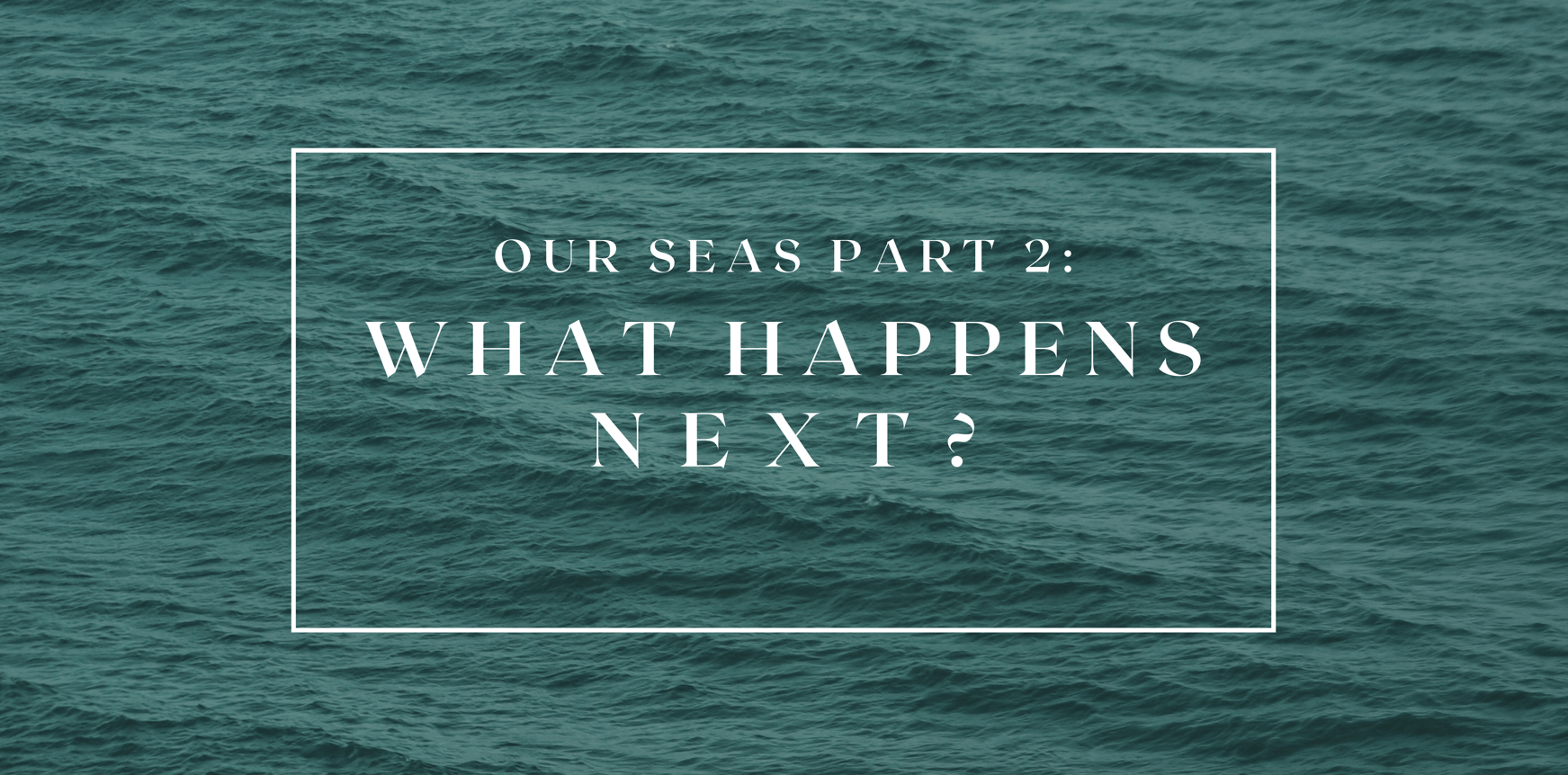“The whole of the ecosystems of the world are based on the healthy oceans, and if that part of the planet becomes dysfunctional and goes wrong, then the whole of life on this planet will suffer.”
Sir David Attenborough
Up until this point, we’ve very much focused on the positives of the ocean, and rightly so; you can’t be inspired to help something if you’re not too aware of its value. However, as I’m sure we’ve all caught glimpses of on the news or on social media, we’re facing a climate emergency which simply can’t be tackled with business-as-usual.
But therein lies the problem: these things do make their way onto our news and TikTok feeds, but we tend to focus on the negative story for all of 15 seconds before scrolling onto the next dopamine rush. And this is in no way intended to shame you (or me) for doing so – it’s simply human nature, but we have the power to positively contribute to our future generations which is worth a little discomfort from the norm.
Some ocean issues right now:
- Marine litter & pollution
- Habitat damage
- Ocean warming due to climate change
- Lack of Marine Protected Areas (MPAs)
- Overfishing & fishermen unemployment
- Invasive species
All these issues contribute towards reduced biodiversity, which underpins the survival and flourishment of marine species. We need a variety of species which fulfil different roles to stabilise our ecosystems and prevent extinction risks.
Who’s helping?
The Marine Biology Association (MBA)follows the mission of researching and spreading knowledge surrounding the causes and impacts of marine environmental change, exploring topics from plankton research to the limitations of the revolutionary High Seas Treaty. MBA membership involves education and policy-changing opportunities, alongside discounts for events, courses, and journals.
Women in Ocean Science is a women-empowering, non-profit organisation, aiming to inspire women to flourish in ocean-connected careers. Their ethos is clearly centred around the inclusion of any next-generation woman, no matter their background, to explore marine science and help improve the natural world as well as breaking down accessibility barriers of the area. You can access mentorship, special events and collaboration opportunities free-of-charge through their membership.
The Wildlife Trustsraise awareness of the benefits of managed realignment and habitat restoration for rejuvenating wildlife success, working closely with schools, colleges, and universities, as well as landowners, fishermen, businesses, politicians, and national governments. Their report ‘The Way Back to Living Seas’ includes a management approach for the regeneration of thriving and sustainable seas, to benefit future generations of humans and wildlife. For members, there are campaigns, events, and volunteer opportunities, and access to beautiful nature reserves.
Surfers Against Sewageoriginated from a community of surfers who frequently swam in raw sewage conditions whenever they went into the water and is now inclusive of everyone, from swimmers to dog walkers. They are a small group, enabling them to remain agile, responsive, and honest, and they campaign against issues like climate change and plastic pollution, which you can get involved in too!
“So, what can I do?”
Everyone can do their bit to reduce their individual pressure on the delicate but ironically adaptable ecosystems that support life on Earth.
Notice the companies you’re supporting. It’s not always possible or practical to choose the most sustainable products in daily life, but bear in mind that every purchase contributes towards a company’s existing choices, and it’s worth doing a little research beforehand.
Reduce your own emissions. By lessening your meat and dairy consumption a little, and travelling smarter through more public transport and walking, you can indirectly help fragile ecosystems like coral reefs and commercial fish communities. Such organisms are victim of global warming due to greenhouse gas emissions, and making conscious decisions has the power to relieve pressure from them.
Choose the reef-safe sun cream. The main banned ingredients in places like Thailand, Hawaii and Mexico are the “three Os”: octinoxate, octocrylene, and oxybenzone, which can cause coral DNA damage and bleaching, resulting in defected growth and death. Terms like “reef-friendly” and “reef-safe” aren’t lawfully regulated, so it’s worth checking the ingredients list, especially when travelling.
Be mindful of the nature around you. Beaches, seas, and other natural environments contain delicate communities, so watch your step when walking around and keep yourself to yourself if you find yourself diving underwater. Limiting your individual plastic introduction to places you visit is also crucial for organisms’ survival; plastic is dangerous when ingested and is gradually making its way through the food chain. Leave areas the same, if not better, than you found them!
Of course, it’s not all up to you and me; CEOs and leaders at the top must pivot and commit to conscious goals that will ultimately allow our oceans (and ecosystems on land too) to breathe a little easier. It’s exhausting that we must think so deeply into our every choice in order to achieve a sense of environmental satisfaction.
In the meantime, I hope you’ve learnt a little more about our marine and coastal environments, and please do take on as many opportunities to learn as you can; educate truly is the key to positive change, and our marine environments are absolutely capable of bouncing back.
Thank you so much for coming along this journey!
By Teigan Barber, Marine Biology with Oceanography student from the University of Southampton
 Sustainability
Sustainability Bethany Climpson
Bethany Climpson 622
622


